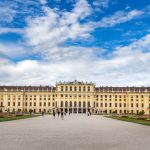In this article, you are going to discover 9 reasons why Mauritius is Africa’s top business-friendly country.
In a world that is more connected now than ever, entrepreneurs are looking beyond their backyards for business opportunities and growth. Companies worldwide are taking advantage of government reforms and internet tools to expand sales, diversify customer bases, counter-seasonal fluctuations, and mitigate risk by reducing dependence on a single market. With tax incentives and low barriers to entry, the risk of starting a business abroad could be much lower than you think.
One country in Africa leading the pace in the ease of doing business is Mauritius. Mauritius ranked 13th out of 190 countries according to the World Bank Ease of Doing Business Report 2020. This makes it the first country in Africa with the best business-friendly climate. Amidst a fast-changing global landscape, Mauritius has consistently transformed its business environment and improved its Ease of Doing Business ranking over recent years, from 49th in 2016 to 13th in 2019. This consolidates the country’s ongoing efforts to make Mauritius the leader in business facilitation in Africa and to be among the best business-friendly countries in the world.
So what are the benefits of doing business in Mauritius? You will find out in this article.
Table of Contents
Social and political stability
This is the major concern of any investor before anything else and Mauritius provides this amply. The country has a strong and stable democracy and is Africa’s most democratic country with a score of 8.14. It is Africa’s most peaceful country with a peace index of 1.51. It also ranks as the 23rd most peaceful country in the world. This stability provides the opportunity for businesses to plan long-term projects without any fear of sudden disruption.
A healthy economy
The Mauritian economy is one of the fastest-growing in sub-Saharan Africa. In just three decades, the country has moved from a mono-crop sugar-dominated economy to a sophisticated and diversified services-oriented one. In 2022, it recorded a 7.4% GDP increase in the Annual Growth rate. The tertiary sector currently accounts for 70% of GDP, a fair indication of its impressive track record. Mauritius’s traditional growth sectors like tourism and manufacturing also continue to be strong. While more opportunities have risen in emerging sectors with the potential to become economic pillars of a regional powerhouse. The Mauritian government has also announced plans to promote health, ICT, and renewable energy investments. This offers a conducive environment to potential investors.
Availability of skilled workers
Mauritius has an intelligent brand of fine professionals, most qualified from internationally recognized institutions and world-class professional bodies. This includes chartered accountants, financial analysts, corporate lawyers, tax specialists, business consultants, IT engineers and architects. Recently too, the Government of Mauritius enacted legislation encouraging young foreign professionals to set up in the country. The country also has one of Africa’s highest adult literacy rates at 91%.
Ease of setting up a business and paying taxes
Today, any foreign investor can settle hassle-free in Mauritius and be operational in just 3 days. The country has one of the lowest tax rates in the world. The tax rate currently stands at 15%. This can be further reduced to 3% if the company’s primary business is related to export. Offshore companies controlled outside Mauritius are only taxed on income derived from the country. Mauritius also has signed non-double taxation agreements with 33 countries.
Infrastructure
Mauritius has a well-developed network of infrastructure across the country. The country has an extensive and well-maintained road infrastructure. It also has a modern and efficient port capable of berthing vessels up to 100 meters. The country also has a web of sea links and direct air connections with several cities around the world. Other infrastructures include high-band fibre cable connectivity, a reliable fixed and mobile telephone network, express courier service providers and freight forwarders, fully serviced business and industrial parks, a free port, well equipped and comfortable offices.
The Government is committed to endowing Mauritius with a reliable, efficient and supportive infrastructure, at par with the best available in developed countries. To this effect, the government has already invested massively and has committed large sums of funds for the continuous upgrading of the overall infrastructure.
A bilingual workforce
Mauritius has one of the highest adult literacy rates in Africa with 91%. This results from a strong commitment to free education for all initiated in the late 70s. This highly disciplined and educated workforce is also equally fluent in English and French. Many also speak a third international language: Hindi, Mandarin, Urdu and a host of European languages. The workforce is young, 29.2% being aged less than 30 and business spirited, innovative thinking and open to the world. What better asset for a new company than a highly skilled young and bilingual workforce?
Financial hub
Mauritius is recognized as an excellent place for doing business. The country’s adoption of international best business practices and sustainable development policies has been acknowledged by international agencies such as the Organisation for Economic Cooperation and Development (OECD), the Financial Action Task Force (FAFT) and the World Bank (WB). The island is fully open to foreign capital, talents and ideas. Ranked 1st in the 2014 Ibrahim Index of African Governance and 1st in Sub-Saharan Africa and 28th globally in the World Bank Doing Business Report 2015, Mauritius is the springboard for investment and doing business in Africa, the Middle East and Asia.
Access to markets
While endowed with a small, but increasingly affluent local population, Mauritius has secured preferential access to markets worth several hundreds of millions of consumers; With the EU, through the Cotonou agreement; with the US under the Africa Growth and Opportunity Act; with Eastern and Southern Africa, through the COMESA (Common Market for Eastern and Southern Africa) and SADC (Southern African Development Community). Mauritian traditional investors are also very receptive to partnering with their international counterparts. An increasing number of joint ventures are being witnessed today, in the traditionally strong sectors as well as in a growing number of innovation-driven emerging sectors.
Conducive labour laws
Employment rights and obligations in Mauritius are now governed by the new Employment Right Act 2008. This piece of legislation has been designed to cater to the needs of the modern employment environment in Mauritius. It embodies a substantial percentage of foreign workers at all levels of the work stratum.
At this point, are you already thinking of moving to Mauritius to start a business? What are your thoughts about the Mauritian economy? Please share them in the comment section. If you enjoyed this piece, kindly share it. If you are yet to subscribe to After School Africa, now is a good time to do so. Until next time, remember that YOUR SUCCESS MATTERS.
References: Indeed









